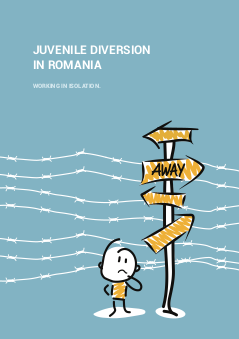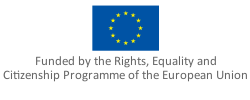
Microsite AWAY
Review of Diversion in the Juvenile Justice Systems of Belgium, Bulgaria, Croatia, Hungary and Romania - Synthesis Report

Judicial systems in the countries involved in "Alternative Ways to Address Youth (AWAY)" Project project (Belgium, Bulgaria, Croatia, Hungary, and Romania) widely vary; in some countries only specialized juvenile police, prosecutors and courts can take part in juvenile criminal cases, while in other countries there are no specialized departments or even trained juvenile police officers, or other juvenile professionals.
Each country has its own approach to juvenile offenders and for processing their cases. Despite an internationally accepted definition of diversion, there are few comparable data sets or practices in the four CEE countries. The expressions used to describe different methods of "diversion" can be confusing as they sometimes refer to actions which do not remove a child from criminal procedures for rehabilitation and restoring the child’' place in society. In fact, some of the "educational" measures described as "diversion" are not so different from detention in prison.
Despite statistical evidence to the contrary, the general perception in all five countries is that juvenile criminal behaviour is on the rise. This false image has brought about different standpoints; while in some countries it provides the basis for "moral panic", in others it has encouraged a political rhetoric for law and order. It has also led to some countries questioning the use of alternative measures when dealing with children at risk with the law and doubts concerning their benefits. Others, in practice, have simply started to dismiss the idea of providing child-friendly and respectful treatment in cases of juvenile offenders.
Raising public and professional awareness through providing an analysis of the available data on diversion practices and results, and engaging communities and adequately training professionals in dealing with juvenile offenders, may go a long way to correct this false perception. Most of the country reports mention, in some context, children under the age of 12 in their juvenile justice system. Some countries have no clear minimum age of criminal responsibility, and children as young as eight years of age may end up being treated as criminals by social or correctional authorities, if not the judicial system. All of the reports call for a better set of standards, procedural rules, and training in children’s rights and child- friendly practices for all professionals involved in the juvenile justice system.
Juvenile diversion in Romania - Working in isolation

Download the Report: English | Romanian
This report provides an analysis of the juvenile justice system in Romania with a special focus on diversion measures. The evaluation was conducted in the light of EU standards (Directives 2012/29; 2001/220; 2012/800), but also important UN standards (such as Havana Rules, Beijing Rules, Riyadh Guidelines and so on).
